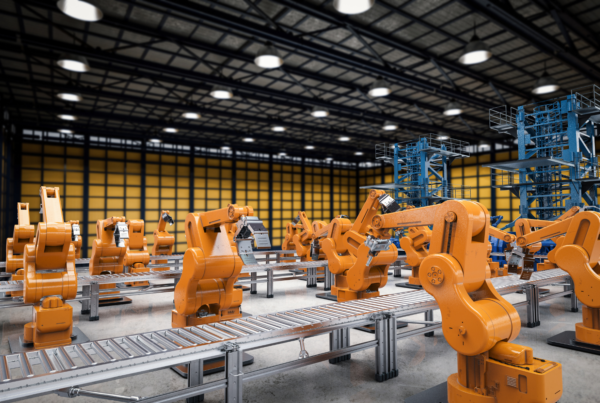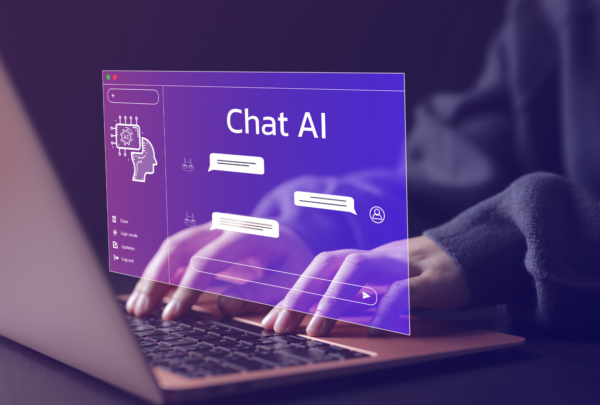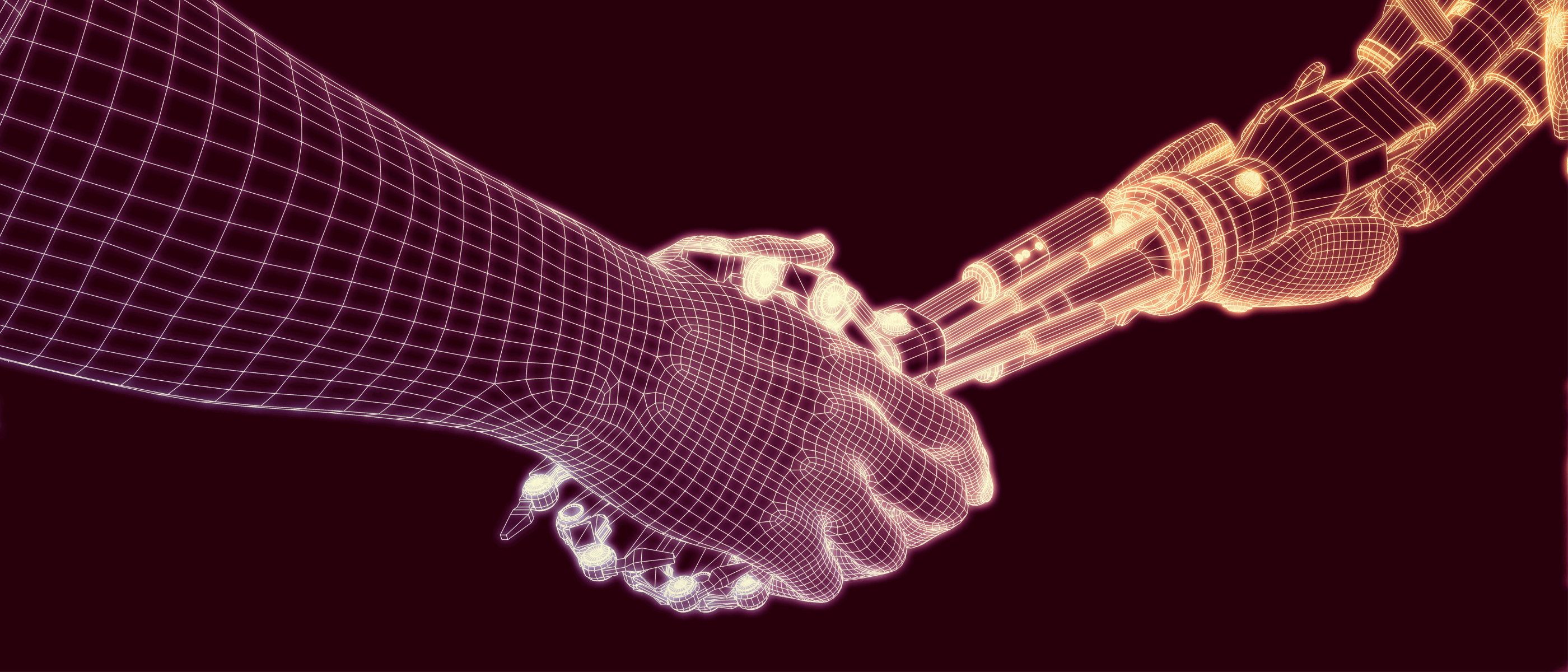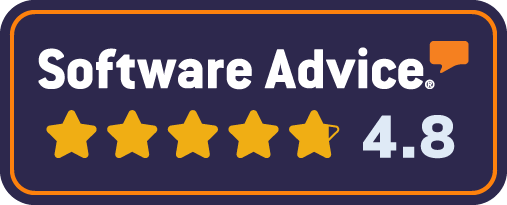AI vs. Automation: Critical Differences
How to Use AI For Sales and Marketing
People often use the words AI and automation interchangeably. However, AI and automation are not the same thing.
What is AI? What are the differences within AI vs. automation?
By combining AI and automation, businesses unlock endless potential in terms of efficiency, time and cost savings, innovative solutions, predictive analytics, and improvements to customer experience.
Getting the most out of automation and AI tools relies on a foundational understanding of each and correct implementations.
In this blog, we’ll dive into:
AI vs. automation: what’s the difference?
Generally, people use the words AI and automation interchangeably. In terms of business use cases and efficiency, they both have much to offer.
However, AI and automation are not the same thing.
AI is created with the capacity to learn, while automation follows predefined rules and instructions.
Defining AI vs. Automation
What is AI?

Artificial intelligence (AI) aims to replicate human intelligence in machines, empowering them to do things that previously, only the human brain could do. This includes learning, reasoning, language understanding, and problem-solving.
Because they are able to learn, AI systems can adapt and improve over time—even with little human intervention.
AI is a broad field that encompasses various techniques and approaches aimed at creating systems that can perform tasks that typically require human intelligence.
AI is powered by sophisticated algorithms, machine learning (ML), and large language models (LLMs).
What is machine learning?
Machine learning (ML) is a part of AI that is central to its ability to adapt. One of the most prominent and widely used approaches within AI, ML focuses on the development of algorithms and models that enable computers to learn from data, make predictions, and continuously improve, without being explicitly programmed to do so.
While machine learning is a key component of AI, AI also includes other areas such as large language models (LLMs), natural language processing, computer vision, robotics, and more.
What is automation?
Automation executes repetitive and rule-based tasks and processes automatically, without the need for human intervention.
By using machines to automate tasks, automation helps to streamline workflows, increase efficiency, and reduce errors.
Automation often performs tasks by following predefined instructions, and does not usually involve any advanced cognitive or learning capabilities—unlike AI.

How AI and Automation are Similar
The overarching goals for AI and automation are very similar: to enable machines to perform tasks in order to reduce the need for human labor, improve efficiency, and reduce errors.
Both are the results of rapid technological advancement and keys to the transformation of various industries, including manufacturing, services, and business.
Differences between AI vs. Automation
While AI and automation share similar goals, they differ heavily in execution.
The key difference between AI and automation lies in cognitive ability vs. task execution.
Through machine learning, AI replicates human cognition: it can think, adapt, and improve over time. In contrast, automation performs predefined tasks—without continuous learning.
AI is able to think for itself, learn, and improve—automation cannot.
Typically, automation is based on predefined rules to execute a specific, repetitive task, especially those that require consistency and precision.
Capable of adapting without human intervention, AI can handle a wider variety of tasks than automation. It can be applied to areas that require decision making, speech recognition, or prediction.
For example, let’s think about smart home capabilities.
With smart home automation, you could set the lights to dim at 7pm every day—and your home would automate that process at 7pm every day.
With AI, the smart home AI would notice a pattern that you dim the lights every day after sunset—and it would dim the lights for you, based on your determined preferences, and optimize energy usage.

It’s important to note, however, that AI requires continual oversight to ensure its learning doesn’t “drift” in the wrong directions for its purpose. This is generally known as training—you must continually train the model to ensure the most optimal results are maintained. If an AI model goes without training, its results will naturally degrade over time.
While training is a must for any AI model, training can also take it in the wrong direction. It’s vital to constantly monitor its performance and ensure you have the right “save points” in training so you can reset without losing progress or creating a new model.
AI vs. Automation Comparison Chart
Here is a quick summary of what we’ve talked about so far with AI vs. automation.
| AI | Automation |
| Capable of learning and evolving | Does not learn; performs tasks as programmed |
| High-complexity use cases | Lower-complexity use cases |
| Highly-adaptable without human intervention | Requires human intervention for adaptation |
| Based on algorithms, machine learning, etc. | Includes simple systems (like a lever or physical machine) to software systems |
| Used for tasks that require judgment, predictive analysis, language processing, etc. | Common for repetitive tasks such as manufacturing, data entry, etc. |
| Can make mistakes | Executes tasks exactly as programmed |
Benefits of AI vs. Automation for Businesses
AI and automation are two distinct tools that both play a role in the current technological revolution of business processes and operations.
By combining the two, businesses can enhance:
Time and cost savings
Automation is key to creating new operational efficiencies, as it can be programmed to do work that has previously been manually performed.
AI, such as conversational AI, can help to respond instantly to customer inquiries, where humans would take longer.
For example, think about a customer service team tasked with handling a high volume of customer inquiries. Without AI, team members would need to manually review each incoming message, categorize them, and respond appropriately. Not only is this time-consuming, it’s also expensive for the company.
NVIDIA’s 2023 survey of 500 financial professionals found that 35% of them decreased annual costs by over 10% using AI.

Customer experiences
Automation in customer service processes enables companies to deliver faster, more consistent, and personalized support experiences to their customers, ultimately leading to higher satisfaction and loyalty.
For example, automation can streamline the customer support process by completing routine tasks, sorting through customer issues, and escalating complex inquiries to human agents when necessary. This reduces resolution times and ensures that customers receive timely and effective support.
In NVIDIA’s recent survey, 46% of respondents claimed that AI has helped them improve their customer experience.
Scalability
One of the biggest benefits automation and AI tools offer businesses is scalability.
Automation enables businesses to handle increased workloads, expand operations, and accommodate growth without significantly increasing manual effort or resources.
For example, whether a company processes 1,000 invoices a day or 100,000—automation can handle them all. On the other hand, if people were required to process invoices, the company would need to hire many more team members to scale with their growth.
Data-driven decision making
While automation can certainly help provide data and insights, AI’s predictive capabilities allow companies to make better informed decisions than ever before.
With AI-enabled analytics, businesses can more swiftly and effectively anticipate and respond to market changes and growth opportunities.
Improve employee experience
With massive benefits to time savings and overall efficiency, AI and automation empower employees to do more work that really matters. 
Rather than spending their day on repetitive tasks, employees can shift to doing more satisfying and meaningful work. And this truly has an impact.
In a survey, Salesforce found that 89% of employees reported greater job satisfaction due to automation, while 91% said automation improved their work-life balance.
AI and Automation Use Cases for Sales and Marketing
As 88% of marketers believe their marketing organization must increase use of automation and AI to meet customer expectations, both of these tools can be massively beneficial to both marketing and sales organizations.
Use cases for AI and automation in sales and marketing include:
Lead scoring and qualification
As AI learns your company’s lead scoring algorithm, it can analyze data to qualify leads, saving your sales and marketing teams time.
AI can be trained to consider factors like lead demographics, engagement level, past interactions, and buying intent.
Marketing automation
Any marketing professional has likely used marketing automation before, and for good reason.
Without marketing automation software, the marketing team would need to manually create each email, input recipient emails, and schedule sends. While making human error an issue, this process would be incredibly time consuming and mentally draining, especially with longer email lists.
Marketing automation solves these problems, allowing teams to create templates, automate campaigns based on specific triggers, segment audiences, track clicks, and schedule batches of emails.
Predictive analytics
Through AI’s predictive analytics capabilities, sales teams can more easily analyze historical sales data, market trends, and customer behavior to predict future sales performance.

By automating data preparation and cleaning (this includes removing duplicates, standardizing formats, and filling in missing values), sales teams can streamline this process as well.
Social media monitoring
As social media continues to grow in importance for both marketing and sales teams, AI tools can monitor social media channels for mentions, trends, and brand sentiment. 
Virtual assistants
Virtual assistants leverage conversational AI and natural language processing (NLP) technologies to have human-like conversations with customers in real-time.
These assistants boost customer satisfaction and engagement, answer questions, provide assistance, and help to guide leads through the sales funnel.
Revenue growth
Not only do AI and automation save your team time, they also promote revenue growth. With things like lead qualification and lead follow-up automated, it removes human error, ensuring that every lead is engaged.
Risks of AI vs. Automation
Employment Landscape
Even if automation is helping to eliminate the manual work of mundane and repetitive tasks, it will inevitably change the employment landscape.
Implementation of AI technologies could result in an estimated 20% of enterprise employees needing to be reskilled.
However, reskilling and upskilling a human workforce does not need to be a bad thing. This has the potential to rapidly shift people into more valuable industries and remove manual labor; it’s speculated that industry shifts due to AI could boost labor productivity growth.
Through proper planning and investment, companies can mitigate these risks. By training employees to move into new roles, companies can help to upskill their teams.
Ethics and compliance
In an IBM survey, 85% of consumers say that it is important for organizations to factor in ethics with AI, and 75% of executives agreed. Three of four executives also agreed that AI ethics is a competitive differentiator.

While AI ethics is a tricky topic, subject to extensive discussion, it is extremely important that businesses keep AI ethics top-of-mind. In their own efforts and with the AI platforms that they choose, they must prioritize data privacy, respect for the consumer, and compliance with legal requirements.
Accuracy
Another risk associated with AI is its potential for bias and inaccuracy. In a McKinsey study, most respondents agreed that inaccuracy was the most relevant risk for AI.
AI’s inaccuracy is largely dependent on the model or platform itself, as well as the type of AI. Since generative AI generates information based on the data sets it is trained on, it is generally most subject to issues with inaccuracy, also known as AI hallucination.
Implementing safeguards such as a human-in-the-loop approach (like we do at Verse) helps to ameliorate this issue by adding a layer of quality control between users and AI.
Other solutions include building AI that is not necessarily generative, and training AI models effectively.
How Verse’s AI Works
If you are interested in AI to boost sales and marketing ROI, look no further.
Verse.ai is the sales and marketing AI of the future, empowering companies with:
- Instant and 24/7 lead response.
- Effective and compliant lead generation.
- Automated lead qualification and nurture.

By combining AI-powered technology and human concierges, we enable two-way text conversations for supercharged lead engagement and qualification efforts.
With Verse, have peace of mind knowing:
- Our human-in- the-loop approach ensures quality control.
- Our AI is non-generative, so it does not provide inaccurate information, ever.
- We keep customer respect top-of-mind and hold the highest compliance standards.
- Our AI engages every lead and qualifies them automatically.
- Our AI and concierges are extensively trained on your business and goals.
As companies capitalize on the benefits AI has to offer, don’t be left behind. Drive more revenue opportunities from your marketing and sales investments with powerful AI with a human approach.
Let’s talk about how Verse.ai can help your company adopt AI.


